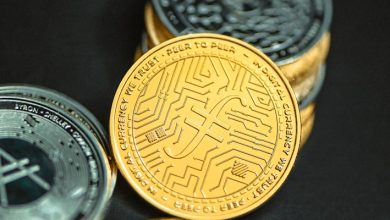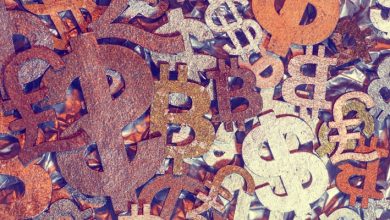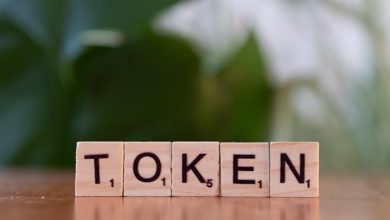What Are Governance Tokens? A Beginner’s Guide

- Understanding the basics of governance tokens
- How governance tokens work in decentralized systems
- The role of governance tokens in decision-making processes
- Benefits and drawbacks of using governance tokens
- Popular projects utilizing governance tokens
- A step-by-step guide to acquiring and using governance tokens
Understanding the basics of governance tokens
Governance tokens are digital assets that provide holders with the right to vote on decisions related to a specific platform or protocol. These tokens are a key component of decentralized governance, allowing token holders to participate in the decision-making process and shape the future of the project.
By holding governance tokens, users can propose and vote on changes to the protocol, such as upgrades, parameter adjustments, or funding allocations. This gives token holders a voice in the direction of the project and helps ensure that decisions are made in the best interest of the community.
One of the primary benefits of governance tokens is that they incentivize participation and engagement within the ecosystem. By giving users a stake in the governance process, projects can increase decentralization and promote a sense of ownership among token holders.
How governance tokens work in decentralized systems
Governance tokens play a crucial role in decentralized systems by enabling token holders to participate in decision-making processes. These tokens give holders the right to vote on proposals that can impact the future development and direction of the protocol or platform. The more tokens a holder possesses, the more voting power they have. This system helps ensure that decisions are made by those who have a vested interest in the success of the project.
When a proposal is submitted, token holders can vote on whether to approve or reject it. This democratic process allows the community to collectively govern the project, making decisions on issues such as protocol upgrades, changes to tokenomics, or any other relevant matters. The goal is to achieve consensus among token holders and move the project forward in a way that benefits the entire ecosystem.
In addition to voting rights, governance tokens can also be used to delegate voting power to other participants. This means that token holders can transfer their voting rights to a delegate who then votes on their behalf. Delegation allows for more efficient decision-making and enables token holders who may not have the time or expertise to participate actively in governance.
Overall, governance tokens are a powerful tool for decentralized systems, allowing token holders to have a say in the direction of the project. By incentivizing participation and giving a voice to the community, these tokens help ensure the long-term success and sustainability of decentralized platforms.
The role of governance tokens in decision-making processes
Governance tokens play a crucial role in decision-making processes within decentralized autonomous organizations (DAOs). These tokens represent voting power that holders can use to participate in governance activities, such as proposing and voting on changes to the protocol. By holding governance tokens, individuals have a say in the direction and development of the project, making decisions collectively with other token holders. This democratic process ensures that the community’s interests are represented and that decisions are made in a transparent and inclusive manner.
In the realm of decentralized finance (DeFi), governance tokens are used to govern various aspects of a protocol, such as fee structures, asset listings, and upgrades. Token holders can influence the direction of the project by voting on proposals submitted by community members or core developers. This system of governance empowers token holders to shape the future of the protocol and aligns incentives among stakeholders.
Furthermore, governance tokens incentivize active participation in the community by rewarding holders who engage in governance activities. By staking their tokens or participating in voting processes, holders can earn rewards in the form of additional tokens or other benefits. This mechanism encourages token holders to stay informed about the project’s developments and actively contribute to decision-making processes.
Overall, governance tokens are essential tools for fostering community engagement, ensuring transparency in decision-making, and aligning incentives among stakeholders in decentralized protocols. By giving token holders a voice in governance processes, these tokens help create a more inclusive and democratic ecosystem where all participants have a stake in the project’s success.
Benefits and drawbacks of using governance tokens
One of the main benefits of using governance tokens is the ability for token holders to have a say in the decision-making process of a decentralized autonomous organization (DAO). By holding governance tokens, users can participate in voting on proposals that can impact the future direction of the project. This gives token holders a sense of ownership and control over the platform, which can lead to increased community engagement and loyalty.
On the flip side, there are also drawbacks to using governance tokens. One potential issue is voter apathy, where token holders may not actively participate in voting or may not fully understand the implications of their decisions. This can lead to centralized control by a small group of token holders, which goes against the principles of decentralization. Additionally, there is the risk of governance attacks, where malicious actors accumulate a large number of tokens to manipulate the voting process for their own gain.
Overall, governance tokens offer a unique way for users to be involved in the decision-making process of decentralized platforms. However, it is important for token holders to stay informed and actively participate in governance to ensure a fair and decentralized system for all stakeholders.
Popular projects utilizing governance tokens
Popular projects that have successfully implemented governance tokens include:
- Aave – A decentralized lending platform that allows users to vote on changes to the protocol through its governance token, which is called AAVE.
- Compound – Another decentralized finance platform that uses the COMP token for voting on proposals related to the platform’s development and management.
- Uniswap – This popular decentralized exchange uses the UNI token to give holders voting rights on important decisions regarding the platform.
- SushiSwap – A decentralized exchange that utilizes the SUSHI token for governance, enabling token holders to participate in decision-making processes.
These projects demonstrate the power of governance tokens in giving users a say in the direction of decentralized platforms, making them an important aspect of the decentralized finance ecosystem.
A step-by-step guide to acquiring and using governance tokens
Acquiring and utilizing governance tokens can be an exciting venture for those looking to participate in decentralized governance systems. Here is a step-by-step guide on how you can get started with governance tokens:
- Research: The first step in acquiring governance tokens is to research and understand the project or platform issuing the tokens. Make sure you are familiar with the goals, values, and governance structure of the project.
- Choose a Wallet: Next, you will need to choose a suitable wallet to store your tokens. Ensure that the wallet is compatible with the type of tokens you are acquiring.
- Acquire Tokens: Once you have chosen a wallet, you can acquire governance tokens through various means such as purchasing them on a cryptocurrency exchange or participating in token distribution events.
- Participate in Governance: After acquiring tokens, you can start participating in governance activities such as voting on proposals, suggesting changes, or even submitting your own proposals.
- Stay Informed: It is essential to stay informed about the project’s developments, upcoming votes, and changes in governance policies. This will help you make informed decisions when participating in governance.
- Engage with the Community: Lastly, engaging with the community of token holders and governance participants can provide valuable insights, support, and collaboration opportunities.
By following these steps, you can effectively acquire and use governance tokens to participate in decentralized governance systems and contribute to the decision-making processes of your favorite projects or platforms.



